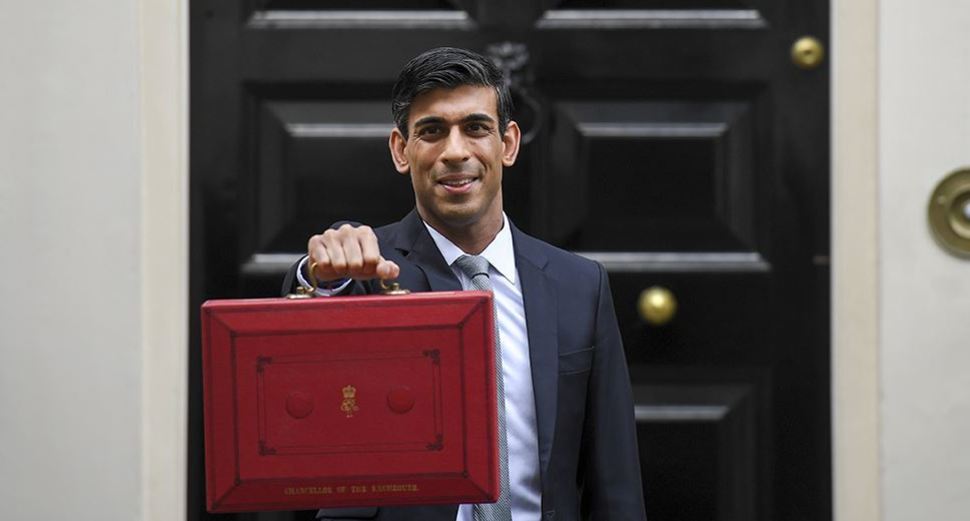What is rumoured to come out of the upcoming 2021 budget?
Posted on 15th February 2021
This year’s Budget speech from Chancellor Rishi Sunak, will take place on Wednesday 3 March at around 12.30pm.
We predict that this year’s Budget announcement will be one to watch closely, as it comes in a time of huge economic fallout from the current pandemic. What it contains will shape the finances of the country and of us all individually.
What can we expect?
The Treasury has already revealed that, “the Budget will set out the next phase of the plan to tackle the virus and protect jobs.”
The current debate is around whether the UK will plan to start paying off the £270.8bn amount of debt that has built up during the Covid pandemic, and how the government are going to provide financial support for those hit the hardest by the Covid virus outbreak.
Although the 2019 Conservative manifesto pledged to not increase Income Tax, National Insurance or VAT, that was before the pandemic. Therefore, the Chancellor could argue that due to the extenuating circumstances the pandemic created, they may have to reverse this pledge and raise taxes.
There are many rumours and predictions already flying around about the 2021 Budget. Below we cover a small, but relevant part of what is being suggested by government officials and reported in the media. If these changes go ahead, they could have significant implications for sole traders, the self-employed and partnerships who are looking to sell their business or shares.
Potential changes to Capital Gains Tax and Business Asset Disposal Relief
Capital Gains Tax (CGT) is tax you pay on the profit or gain made when you sell or dispose of an asset - something that has increased in value, including the sale of your business or buy-to-leyt property.
In July 2020, Chancellor Rishi Sunak asked the Office of Tax Simplification (OTS) to comprehensively review the principles underpinning the CGT. As a result, in November 2020, the OTS published a report into the CGT system, saying it could be made fairer and simpler by raising rates to match income tax and reducing the annual exempt amount.
Here we explain the main proposed changes listed within the report:
1. Fewer and higher CGT rates: rates should be more closely aligned with income tax rates, as currently the difference can distort the way people dispose of their assets. If a higher flat-rate is introduced, people could end up paying a lot more CGT then they currently do.
2. Reduced CGT tax-free allowances: the report identified issues whereby taxpayers utilise their annual exempt amount each year and this behaviour is distorted because of these exemptions, therefore it should be changed. The current exemption amount is £12,300, the report suggests this should be reduced to between £2,000 and £4,000.
3. CGT on inherited assets: the OTS report states that Inheritance Tax (IHT) and the CGT are not working well together. Currently, if you inherit an asset and then sell it for a profit, the amount of CGT you’d pay is based on the price difference of the asset from when you inherited it, not the price the deceased bought it for. It is likely that this calculation results in much less tax being paid, this is called CGT uplift. The report suggests that the government should consider making various changes to the way CGT uplift is calculated and applied.
4. Reassess CGT reliefs: the report identified that the Business Asset Disposal Relief and the Business Investment Relief are not working effectively. The suggested changes are that the Business Investment Relief should be abolished, and the Business Asset Disposal Relief should be replaced by a scheme that focuses specifically on the retirement of owner-managers who have built up their business over time. Some view that the Business Asset Disposal Relief enables people who are already rich from paying tax. The report from the OTS states that the way the current system is used distorts people’s behaviour and drives them to incorporate their business.
How we can help
Whatever happens in the 2021 Budget, it is likely that there are going to be tax hikes and relief reductions - if only to help refill the pot!
We will be watching closely and will update everyone once all the details are released by publishing an updated blog post - so watch this space!
If you are considering company closure, and are concerned how the upcoming Budget may impact that, please get in touch to discuss your options.

Written by
Nicola J Sorrell -
Effective Accounting
Founder | Xero Champion | IR35 Expert
Tagged as: Budget & Tax Rates
Share this post:



